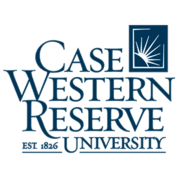13811
Case Main Campus
Full-Time
Regular
Job Description
POSITION OBJECTIVE
Working with a high degree of independence and under general direction, the Research Assistant¿4 will serve as the senior technical lead for a multidisciplinary program that engineers gene¿encoded DNA nanoparticles for biomedical imaging and therapeutic delivery. The research assistant will lead multiple funded projects focused on nanoparticle sequence design, structural optimization, and application development. The research assistant will design and execute complex molecular, biochemical, and biophysical experiments; coordinate laboratory operations; ensure regulatory compliance; and provide advanced training and mentorship to junior researchers. This position directly supports the laboratory mission to innovate nucleic acid based nanomaterials that address pressing challenges in chemical biology and precision medicine. In addition to technical leadership, the research assistant will administer the laboratory research portfolio by coordinating multi year project timelines, aligning personnel and instrumentation resources with grant milestones, and tracking progress toward deliverables in collaboration with the principal investigator.
ESSENTIAL FUNCTIONS
- Provide input and recommendations to the principal investigator regarding significant developments in research projects. Provide day to day scientific leadership for gene encoded DNA nanoparticle projects; formulate experimental strategies in consultation with the principal investigator; perform literature surveillance; assist in developing procedures, devise and optimize novel protocols (e.g., high throughput gene assembly, nanoparticle folding, gradient ultracentrifugation, fluorescence correlation spectroscopy) to advance project aims. Generate and standardize lab wide standard operating procedures for plasmid library automation, nanoparticle sequence design, and high throughput folding screens to ensure reproducibility and knowledge transfer. Coordinate information with others as needed. (20%)
- Experimental execution, data analysis, and interpretation: independently conduct sophisticated bench procedures such as cell¿free transcription¿translation assays, qPCR, next¿generation sequencing sample prep, HPLC/FPLC purification, DLS, TEM, and confocal microscopy. Analyze multidimensional data sets using Python/R, interpret results, identify actionable next steps, and present findings to the principal investigator and collaborators. Perform the most complex and advanced quantitative techniques¿including fluorescence correlation spectroscopy, single¿particle tracking, time¿resolved anisotropy, cryo¿EM particle¿counting, and Bayesian fitting¿to extract precise kinetic and structural parameters for each nanoparticle variant. (25%)
- Laboratory management and regulatory compliance: coordinate major activities of the laboratory, including budgeting and ordering, instrument calibration, chemical and biohazard inventory, and maintenance of all standard operating procedures, MSDS files, IBC/IACUC documentation, and Environmental Health and Safety training records. Serve as lab safety officer and primary liaison to core facilities. (20%)
- Training, supervision, and performance oversight: teach and supervise research assistants, graduate students, and undergraduate trainees in advanced molecular¿nanotechnology techniques; evaluate proficiency; provide constructive feedback; and cultivate an inclusive, high¿performance lab culture. (15%)
- Scholarly dissemination, publications, and grant support: co¿author manuscripts, prepare figures and methods sections, contribute preliminary data and technical narratives for grant proposals, and present research at internal seminars and national conferences. Key deliverables include peer¿reviewed publications, curated preliminary data sets that enable future funding submissions, and high¿visibility dissemination at national and international scientific meetings. (10%)
NONESSENTIAL FUNCTIONS
- Stakeholder Engagement and Administrative Coordination ¿ Interface with vendors, external collaborators, and institutional administrators to negotiate service agreements, coordinate material transfers, and facilitate multi¿site research activities. (5%)
- Perform other duties as assigned. (5%)
CONTACTS
Department: Daily contact with principal investigator regarding research strategies.
University: Regular contact with Core Facilities (Genomics, Electron Microscopy, NMR), Environmental Health and Safety, and Sponsored Projects Administration regarding research.
External: Frequent contact with reagent/equipment vendors, contract research organizations, and academic/industry collaborators regarding research.
Students: Extensive contact with undergraduate researchers and rotation students for mentorship and supervision. Frequent collaboration with postdoctoral fellows and graduate students regarding research.
SUPERVISORY RESPONSIBILITY
Directly supervise 1 to 2 full¿time research assistants/technicians and 3 to 5 student researchers; may oversee temporary staff and interns during peak project periods.
QUALIFICATIONS
Education: Bachelor's degree in Chemistry, Biochemistry, Molecular Biology, Biomedical Engineering, or related field required; Master's degree preferred.
Experience: 5 to 8 years of relevant laboratory experience, with documented progression to independent project leadership and mentorship responsibilities.
REQUIRED SKILLS
- Expertise in microbial and mammalian cell culture, advanced molecular cloning, PCR, and agarose/acrylamide gel electrophoresis.
- Hands¿on proficiency with nucleic¿acid nanotechnology (e.g., DNA origami design tools, caDNAno, shapefolding) and biophysical characterization (AFM, TEM, DLS, SEC¿MALS).
- Strong quantitative skills, including statistical analysis (GraphPad Prism, R) and data visualization (Matplotlib, ggplot2).
- Demonstrated ability to develop and validate new experimental protocols and troubleshoot complex technical problems.
- Proven track record of contributing to peer¿reviewed publications and/or grant submissions.
- Working knowledge of federal and institutional regulations governing recombinant DNA, biohazards, and chemical safety; capacity to maintain full regulatory compliance.
- Excellent written and oral communication skills; ability to convey technical information to diverse audiences and document results in electronic lab notebooks.
- Commitment to fostering an inclusive laboratory environment that supports the success of individuals from all backgrounds.
- Capacity for consistent, reliable attendance and a flexible work schedule to accommodate time¿sensitive experiments.
- Demonstrated history of successful support, education, and advocacy for all students, aligned with the values, mission, and messaging of the university, while adhering to the staff policy on conflict of commitment and interest.
- Ability to meet consistent attendance.
- Ability to interact with colleagues, supervisors, and customers face to face.
WORKING CONDITIONS
Work will be performed primarily in a Biosafety Level¿2 laboratory environment with exposure to biohazardous materials, chemicals (acids, solvents), and pressurized gas cylinders. Personal protective equipment (lab coat, gloves, safety eyewear) is required. The position involves prolonged standing, repetitive pipetting, lifting up to 25¿lbs., and occasional work outside standard business hours to monitor time¿critical assays.
